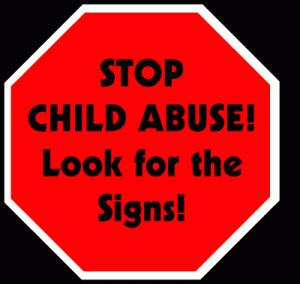As adults, we are responsible for recognizing the signs of child sexual abuse and taking action to keep children safe.
Children are most often abused by someone they know and trust. In more than 90% of sexual abuse cases, the child knows their perpetrator personally – he or she is a family member, childcare provider, friend, neighbor or other trusted person. Perpetrators, who can be adults or youth, usually have permission to be around the child on a regular basis. If someone is “too good to be true,” ask more questions. Even a close friend or relative may not be a safe person for your children.
Signs That a Child May Be Sexually Abused
Children often disclose abuse through unusual behaviors or changes in behaviors, not words. Because many forms of abuse are not physically evident, adults should recognize certain behavioral cues as signs of potential abuse. Consider the possibility of abuse when a child:
- is hesitant about being alone with a specific adult or child
- has sophisticated or unusual sexual knowledge or behavior
- suddenly refuses to change for or participate in physical activities
- experiences nightmares, trouble sleeping or bed-wetting
- shows signs of depression, anxiety, aggression or suicidal ideation, including cutting and other forms of self-harm
- becomes pregnant or contracts a sexually transmitted infection, particularly if under 14
- experiences pain when sitting, walking or using the bathroom

If you suspect abuse, call ChildLine (the child abuse hotline), 1-800-932-0313, right away. It is not your responsibility to investigate abuse, interview the child or get all the facts. Just contact the authorities with your suspicion so that children and families get the support and care they need. If a child is in immediate danger, also call 911.
Reasons Why Children May Not Tell
There are many reasons why children may not disclose abuse. Because most abusers have a close relationship with the child and his or her family, the child may worry about getting their abuser or themselves in trouble. Many abusers make threats to ensure that victims do not tell. Other reasons victims may not tell include:
- shame or embarrassment
- fear that they will not be believed
- fear that they will be blamed
- worry that their parents will be upset or angry
- fear that disclosing will disrupt or separate the family
- limited language or developmental ability
Remember, children often indicate something is wrong through behaviors, not words. It can take a child weeks, months, years or an entire lifetime to fully reveal abuse using words.
Signs That an Adult or Older Youth Is Abusing a Child
Adults and youth can perpetrate child sexual abuse. The following actions are sexual abuse and should immediately be reported to the authorities:
- coercing a child to fondle him/herself or someone else
- touching a child’s genitals, buttocks or breasts
- exposing oneself
- inappropriately viewing private behaviors of a child or teen (e.g., undressing, bathing)
- taking sexually explicit or provocative photographs of a child
- showing pornography or sexually suggestive images to children
- talking in sexually explicit or suggestive ways to children in person, by phone, by internet or via text messages
If you see or have reason to believe an adult or older youth is perpetrating any of these behaviors, call ChildLine (the child abuse hotline), 1-800-932-0313. If a child is in immediate danger, also call 911.